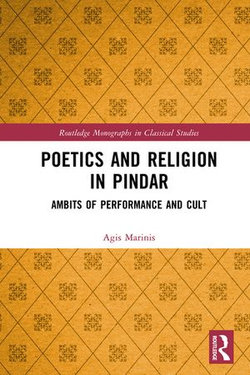This book delves into the intricate and, as argued, essential relationship between poetics and religion in Pindar. It explores how performance, cult, and religious attitudes intersect, offering readers a nuanced approach to Pindaric poetry concerning the relationship between mortals and the divine.
Marinis approaches the world of Pindaric poetry within its historical context, enabling readers to explore the cultural and religious foundations of Pindar’s lyric verse. The chapters examine both epinician poetry and cultic songs, the two major genres of the Pindaric corpus. This monograph focuses on the interconnectedness of poetics and religion, a central question that is essential for understanding the distinctive nature of Pindaric poetry. It examines the diverse ways in which Pindaric poetic tropes intersect with religious themes through detailed analysis and scholarly research. Readers gain an understanding of the significance of performance and cult in the public enactment of Pindar’s works, exploring the relations between mortals – the composer of the song, its performer, and the victor in the case of epinician poetry – and the divine, highlighting the complexities of ancient Greek literature regarding religious practices and attitudes. Through its rigorous examination of Pindaric poetics and religious themes, this book offers readers a profound insight into the religious dimensions of ancient Greek poetry and the enduring legacy of Pindar’s oeuvre.
Poetics and Religion in Pindar is suitable for scholars and students working on ancient Greek literature, particularly the works of Pindar and lyric poetry, as well as those interested in classical literature and ancient Greek religion and culture more broadly.



Share This eBook: